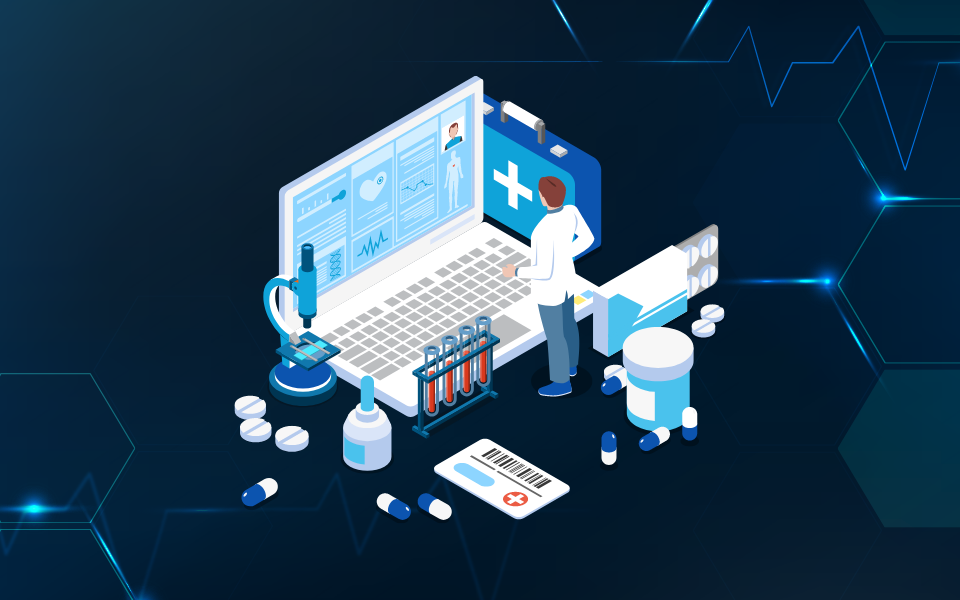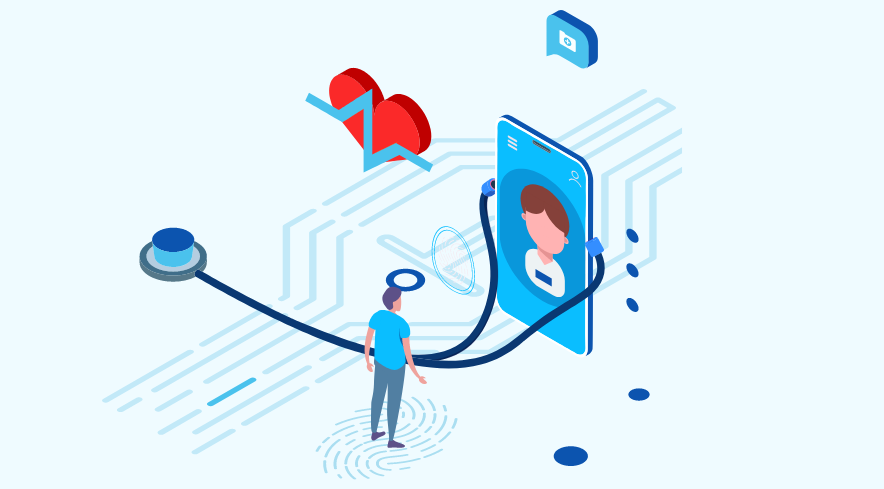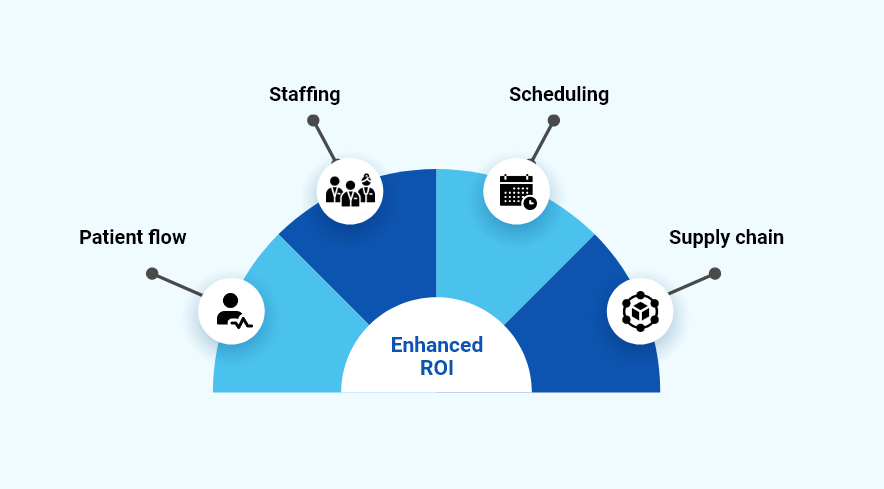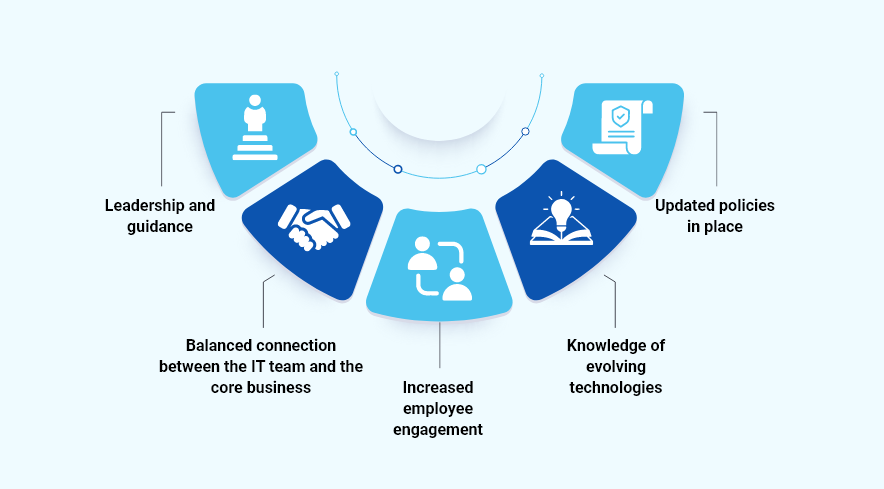
With the year 2022 and its vast shades of B2B healthcare marketing, it is imperative that the marketers have to be more proactive than the rest. Although, B2B Healthcare marketing has been traditionally slow to adopt such practices. Given the sensitive nature of this industry, it goes unsaid that every step owes a lot of research-work, experimentation, clinical-trials, patent-works, etc.
Challenges faced by healthcare industry in recent times
With 2020, came a rampant upsurge of Covid-19 cases, which has till date kept the healthcare industry on its toes. It scared people every day to hear about a new variant of the virus. Horrifying updates of self-health and that of near & dear ones is an ongoing nightmare nowadays.
Is Digital Transformation the next big news in the healthcare industry?
This decade brought with it the shock of Covid-19 pandemic to humanity. Since its very beginning, healthcare professionals, frontline workers etc. are struggling to give the best of their services. It is high time to take stock of current trends of Digital Transformation adopted by healthcare industry in 2022 and their underlying benefits.
What is Digital Transformation healthcare industry?
The healthcare industry has embraced the latest digital transformation trends, such as remote monitoring, AI, Internet of Things (IOT), Cloud computing, AR/VR etc. with open arms. These technologies have got immense potential to revolutionize the healthcare industry globally with breakthrough technological advances and inherent benefits.

1. Cost-effectiveness- Cost-effective measures are the most important benchmark for any industry towards growth.
- Internet of Things- is no more a ‘thing’ associated with the cars or gaming, but a breakthrough technology extensively used in healthcare nowadays. Smart connected devices help the users to make more informed decisions and thus facilitate the data produced by billions of users.
- Telemedicine- reduces the hospital visit costs significantly for the hospital management by around $500-$1000 per visit. However, there should be some ground level preparations from the IT team, like security features, real-time location services, secured messaging, integration of wireless testing modes.
2. Real time health updates- Artificial Intelligence and Remote health monitoring has proved itself a considerable economic tool saving around $2000-$4000 per patient per year depending on various cohort studies.
3. Enhanced ROI- The pandemic times displayed the overburdening of healthcare service professionals and attrition took gigantic leaps in these two years from March 2020- March 2022. Digital transformation in the healthcare industry is capable of taking care of these issues smartly.

- Patient flow- What could be a better example of a humongous spike in patient flow overnight than the pandemic of Covid-19? Predictive tools fed with information records on admissions, capacity, bed-availability in a facility and other units. A proper analysis of this information, with Machine Learning and algorithms, can work wonders for patients and hospital management. These balanced decisions will be backed up by data and have great application.
- Staffing- Managing staff strength with proper protocols of urgent leaves/shift rotation during the peak of Ist, IInd, IIIrd wave was a herculean task for hospital administration. The application of artificial intelligence and machine learning algorithms would give a better picture for planning staff-roasters.
- Scheduling- Prioritizing surgeries (be it elective or an emergency situation) and scheduling them involves a lot of human efforts and at times is not helpful in planning the order of the surgeries. This leads to a bad impact on surgery timings, duration, after-surgery protocols and their impact on the staff.
- Supply chain- US is a nation in which the hospitals spent around $12 million dollars before the pandemic scenario. When such a huge amount of capital is involved, the inventory should be tracked till the last stock available. Sadly, till date some healthcare organizations rely on human calculations coming up with misleading figures of stock and thus ordering fresh stocks of medicines and other supplies, while the older one needs to be cleared up first owing to expiry dates etc.
4. Meaningful patient interactions- The pandemic has forced us to adopt the new normal in all walks of life. Healthcare systems being no exception. A variety of telehealth apps and other alternative channels blossomed during pandemic times with their obvious utility applications. These channels facilitate access, with improved standards of remote patient monitoring and care, even without stepping out of their homes and comfort zones. Advancements in various technologies used for patient care like wearable devices, augmented reality and virtual reality for viable solutions, in general diagnostics and medical training, etc.
5. Data-security- The virtual healthcare world has been flooded with data in the recent most years. Security of data flowing through multichannel in omni directions demands its integrity to be maintained highly. Blockchain technology has emerged as a savior in this aspect.

6. No more working in silos- Internet of Medical Things (IoMT) has taken out the healthcare industry from shackles of working in silos and revolutionized the healthcare industry. A connected system of software applications and healthcare systems. Such networks are a great boon for healthcare providers by cloud infrastructure, as all kinds of data related to patient health and other updates are generated, analyzed and transmitted through them.
7. Reduced human errors- As long as human intelligence is available with all its quality, like analysis, interpretation, derivative abilities and many more, the error part is inevitable. Wrong administration of blood bags because of human errors can lead to fatal incidents with mismatched blood-transfusions etc. Dispatching and administering wrong medications due to misspelt errors or human lethargy may cause an incident of life and death. Technologies like big data can reduce the occurrence of such instances by flagging inconsistencies and mistakes in patient data & records.
8. Efficient predictive analysis of the big data – With an enormous data flow, from all the sub-categories of administration like finance, operations (in this case clinical trials, Research & Development for new drugs etc.), marketing and much more, big data analysis has become the trending efficiency booster in 2022 in healthcare settings. In the first place with insights from wearable devices like arm-bands, wrist-band, smart watches etc. patients themselves take a majority control of their health updates and can monitor their vitals themselves. Secondly, beyond this, the analysis of the data beforehand helps the healthcare professionals to gauge the criticality of the situation and take necessary steps at the earliest.
Apart from the above, digital transformation in healthcare can further take pivotal turns via technologies like Robotic Process Automation (RPA), Natural Language Processing (NLP), Chatbots, Telesurgery and many more.
Are you geared up for the new normal?
The backbone of a ‘Healthy’ healthcare industry is proper and timely supply of medicines, equipment, products and other related supplies. Here comes the million-dollar question in place. How does a B2B healthcare marketer provide these products/services to the right audience across niches and cross-border segments of the world?
Every smart B2B healthcare marketer today should avail themselves of the most validated healthcare email addresses. Connecting to the most receptive audience via leading names of healthcare database providers is the new age solution.
It’s our business to accomplish success in yours!
MedicoLeads enables you to sit back and focus on your marketing strategies while we take care of your B2B Marketing requirements. We share the customized or pre-packaged lists to the business e-mail id within 3-5 days. Just download it and integrate it into your system and start the magical journey of winning awesome leads.
Conclusion







